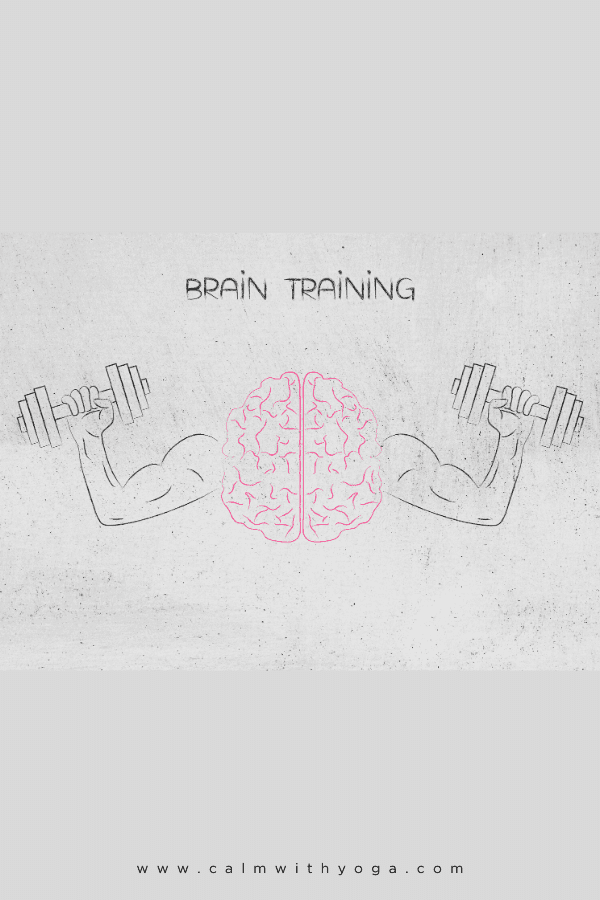Breathing in, I calm my body and mind.
Breathing out, I smile.
Dwelling in the present moment, I know this the only moment.
– Thich Nhat Hanh, Buddhist monk & author
You take about 23,000 breaths each day and 8.4 million breaths this year.
Each mindful breath is an opportunity to reset and return to the present moment.
Because breathing is something you do without a second thought, it’s easy to take for granted.
And yet in each breath, there’s so much potential to shift the way we feel and the way you perceive yourself and the world.
By bringing conscious awareness to your inhales and exhales this potential gets unleashed.
When you don’t tend to your breath you suffer unnecessarily.
You experience unnecessary stress and overwhelm and might even find yourself saying: “I’m so busy I can’t even catch my breath.”
If you want to feel better, think better, work better, love better… you’ll need to breathe better.
Right under your nose, you’ll find one of the most effective tools there is for shifting your state of mind and increasing well-being.
By learning to use your breath as a form of meditation practice you’ll be able to encounter difficult situations from a more grounded and confident place.
Daily life becomes a training ground for mindfulness meditation with each deep breath.
We are all meditators waiting to be discovered…
Chronic stress destroys your brain…

Brain cells create ideas.
Stress kills brain cells.
Stress is not a good idea.
– Frederick Saunders, author
Chronic stress really wreaks havoc on our minds.
Stress can literally kill brain cells.
A single stressful situation has the power to kill neurons in the brain’s hippocampus region (an area related to memory and emotion), as one animal study showed. (1)
Chronic stress shrinks the brain, which leads to emotional and mental impairment.
Specifically, stress shrinks the prefrontal cortex, which is associated with decision making, complex thinking, working memory, moderating social behavior, and attention control. (2)
What’s worse, a chronically stressed-out brain becomes wired and predisposed to being in constant stress mode, thus creating a vicious cycle.
Chronic stress not only shrinks the part of our brain associated with higher thinking, but it has also been shown to increase the size of the amygdala, the part of our brain responsible for experiencing emotion (fear in particular) and processing emotional memories. (3)
Our amygdala is like our brain’s alarm system, sending distress signals whenever threats are perceived.
We’re disconnected from our mental power when we don’t develop and cultivate habits that help us counter stress.
Mindfulness of breathing helps to rebuild your brain and calm your mind…

Breathing in, I know I am breathing in.
Breathing out, I know I am breathing out.
Breathing in, I am aware of my whole body.
Breathing out, I am aware of my whole body.
Breathing in, I calm my whole body.
Breathing out, I calm my whole body
– Anapanasati Sutta, The Discourse on the Full Awareness of Breathing
Think of breath meditation as an antidote to a racing mind and distracting thoughts.
One of the benefits of meditation is that it counteracts the harmful effects of stress by improving your mind’s capacity to think more clearly and sharply.
Regular breath meditation helps calm a racing mind, creates laser focus, inspires creativity, and can even improve memory. (4)
In Eastern practices like Buddhism and Yoga’s 8-Limbed Path, cultivating breath awareness is highlighted as an important meditation technique for increasing mental, emotional, and physical health.
In particular, the Buddhist Anapanasati Sutta, also known as the “Discourse on the Full Awareness of Breathing,” details Buddha’s instructions on how to use the breath to cultivate mindfulness.
In the Sutra, Buddha teaches that us that the first step in transforming our suffering, fear, anxiety, and unsettled mind is to pay attention to the breath.
Bringing full awareness to the breath and noticing as it comes into the nostrils, and as it flows out of the nostrils.
Focusing on the breath going in and breath coming out.
If the mind wanders simply bring your entire attention back to the breath.
Try it right now…
You have two options:
1- A 1-Minute version:
2- The full Breath Awareness Guided Meditation:
https://soundcloud.com/calmwithyoga/breath-awareness-meditation
How Attention and Breathing Changes Our Brains for the Better

Awareness of breathing is, at the same time, awareness of our entire body.
Our mind, our breath, and our whole body are one.
– Thich Nhat Hanh, Breathe! You Are Alive
As Buddha taught the monks, regular practice of mindful breath meditation leads to the attainment of the Four Establishments of Mindfulness:
– Mindfulness of your body (enhanced connection to your body)
– Mindfulness of your feelings (enhanced emotional self-regulation)
– Mindfulness of your mind (mental self-regulation)
– Mindfulness of the objects in your mind (improved focus and self-mastery)
Your breath is the doorway to cultivating present moment awareness, which is an essential skill for increasing mental focus and concentration.
When both body and mind are at ease, the practitioner can easily enter into concentration…
When the practitioner is abiding in concentration with deep calm, he will cease discriminating and comparing.
– Anapanasati Sutta, The Discourse on the Full Awareness of Breathing
The ability to simply notice something without having the desire or urge to judge it or change it in any way is a power in and of itself.
It can change your brain; it can undo the effects of chronic stress.
There’s a lot of exciting research underway to track the effects of mindfulness on our brains.
A regular mindfulness practice, even if it’s just a few minutes every day, can help increase focus by blocking out other distractions.
This helps you carry this enhanced concentration throughout the day. (5)
Other studies have found major brain changes occurring after just as little as eight weeks of regular mindfulness practice.
These studies have found growth or thickening in the hippocampus and the prefrontal cortex, while also observing a shrinkage of the amygdala. (6) (7)
Remember that these regions are impacted by chronic stress, so it’s quite inspiring that regular mindfulness practice actually appears to reverse these effects.
Ancient wisdom has always known what science is now proving.
It’s now up to you to apply this knowledge in your life daily if you want to shift.
Remember, you’ll take about 23,000 breaths today.
How many breaths can you experience with total awareness?
How many breaths can you offer up for more inner peace?
REFERENCES
:
(1) https://www.scientificamerican.com/article/stress-kills-brain-cells/
(2) https://www.sciencedaily.com/releases/2012/08/120812151659.htm
(3) https://www.psychologytoday.com/us/blog/the-athletes-way/201311/the-size-and-connectivity-the-amygdala-predicts-anxiety
(4) https://www.health.com/mind-body/breathing-memory-fear
(5) https://www.businessinsider.com/meditation-effects-benefits-science-2017-3#first-and-foremost-meditation-helps-us-gain-perspective-1
(6) https://blogs.scientificamerican.com/guest-blog/what-does-mindfulness-meditation-do-to-your-brain/
(7) https://www.washingtonpost.com/news/inspired-life/wp/2015/05/26/harvard-neuroscientist-meditation-not-only-reduces-stress-it-literally-changes-your-brain/?noredirect=on&utm_term=.71f4559ee0c2












